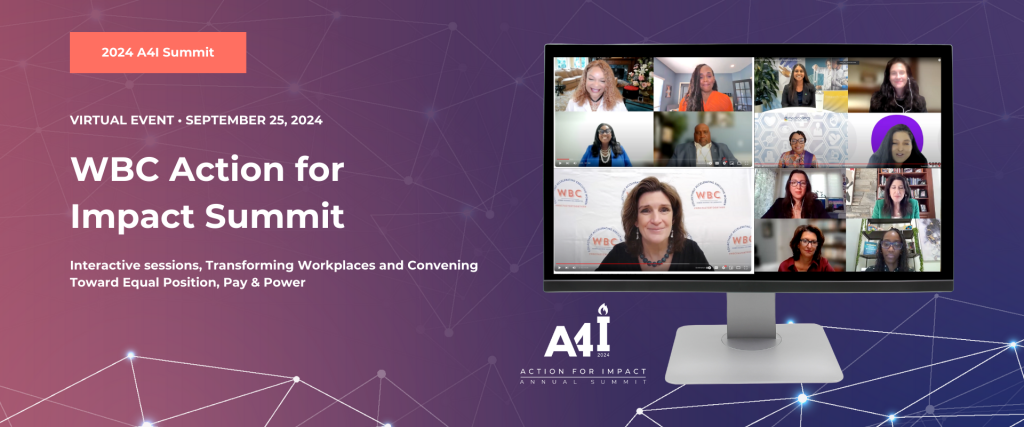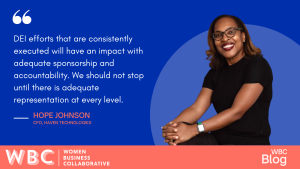As a Jamaican who has been living, studying, and working in the US for decades, DEI has been very important to me from my 1st year in business school to today. From a personal perspective, as a mother of two talented black girls, I have learned from their experiences, some of which have brought tears to my eyes. From a professional perspective, I have countless examples. I can distinctly recall the feeling of working for someone who looked and sounded like me, an experience that has happened only twice in my US professional career, and both have had profound impacts. We often hear about the business case for diversity and often treat it as a theory. However, there are real examples of the impact of lack of diversity in product development, use of technology, and sales engagements. As we celebrate Black History Month this February, I have been in a reflective mood and encourage everyone to pause and reflect.
I came to the US to continue my education and spent my 1st year in the Bronx, New York, a year I frequently refer to as my ‘bubble year.’ Jamaican culture is very strong and present in the Bronx. I went to work, church, and parties with my community. It’s as if I never left home.
However, there was a lot going on in the wider Black community that got my attention. With the help of my older brother, I began to explore and understand more about the history of black Americans. I have always been a numbers person, and in my 1st year in business school, I experienced the “real America, “ starting with assessing the numbers. With each class, it became clear that I was a minority. I had never experienced this feeling before, and I felt a deep desire to fit in and belong. I grew up in a small town where most people know each other or of each other. I had tremendous opportunities to explore life and grow as a youth. I excelled in school and extracurricular activities and developed a life plan from an early age, one that was shaped by the entire community and my belief that I could achieve anything.
The Black Business Students Association became ‘my place.’ As I got to know the Black students, I realized that the majority had Caribbean or African heritage. This was a key factor for me to think about, and I was able to connect these numbers with conversations I had with my brother about the profound lack of resources and opportunities for minority communities! This became a call to action for me as I had seen first-hand the benefit of growing up in an environment where race was not a factor in educational, professional, and economic environments. MLK, Jr.’s statement on Jamaica sums it up.
Why is DEI still important?
There are varying views on the importance and impact of DEI. What I say to everyone is look at the numbers! The numbers for your team, organization and network. Numbers really tell the story. I have been in the Technology sector and Finance field for most of my career, both with significant underrepresentation in the Black and Brown communities. Overall in Corporate America, Black Women as a group are especially underrepresented at all levels. According to Black Women Talk Tech, women still make up only about 26 percent of the total computing workforce, and the numbers are even lower for women of color. This is real across multiple industries as supported by the 9th annual Women in the workplace study conducted by Mckinsey and Leanin.org. The data continues to show that there is lagging progress in the middle of the pipeline—and a persistent underrepresentation of women of color. In addition to underrepresentation, there is the pay equity gap. The Covid-19 pandemic highlighted these gaps in the Black and Brown communities. The Mckinsey study on “ The economic state of Black America” provides much needed details on the gaps and potential solutions.
DEI efforts that are consistently executed will have an impact with adequate sponsorship and accountability. We should not stop until there is adequate representation at every level. Representation fuels representation. Representative drives Belonging. Which in turn encourages us to bring our “whole selves to work.” The net result is diversity of thoughts, skills and increased innovation. It does take time to increase representation and create a diverse pipeline, but each of us has a responsibility to take actions to drive change.
State of Affairs: Where are we now? 2020-2024? Are we staying the course?
In May 2020, George Floyd died, and the Black Lives Matter Movement gained momentum. As black leaders and employees, we engaged in deep and vulnerable conversations and shared our experiences both inside and outside of our organizations. While this was exhausting and deeply sad, many of us had hopes that this time would be different. Companies and leaders took action and made public commitments.
But several years later, I have some questions. Have we achieved these goals? Has progress been made? Is the commitment from senior leadership still there? Are actions and values aligned? The only way to answer these questions and drive accountability is to see the numbers. Ask for data and metrics at all levels and explore intersectionality. Get engaged and be part of the solutions and initiatives your organization has implemented.
On an individual level we can also make a commitment to drive change, leveraging our unique skills, voices and positions of power. One of my personal Heros is Bob Marley and having recently watched the “One Love” Movie, I can’t help to think of his life, words and music– a life dedicated to spreading the message of unity, equality and inclusion.
There are clearly some signs of ongoing commitment and progress. The One Ten Organization has made a commitment and based on its 2022 Impact report has achieved some key milestones and continues to make inroads.
At WBC, the dedication to Diversity and Equity is evident. The Company of Purpose Toolkit is a great resource for companies as they navigate strategies to integrate DEI in talent, brand, and community engagement work to align corporate purpose and drive impact.
So challenge yourself. What other resources have you found helpful? What are some of the critical success factors in your organization’s DEI efforts? What changes have you seen? Please join the conversation and share your thoughts onward and upward.
Hope Johnson
WBC Champion Network & CFO of Haven Technologies








